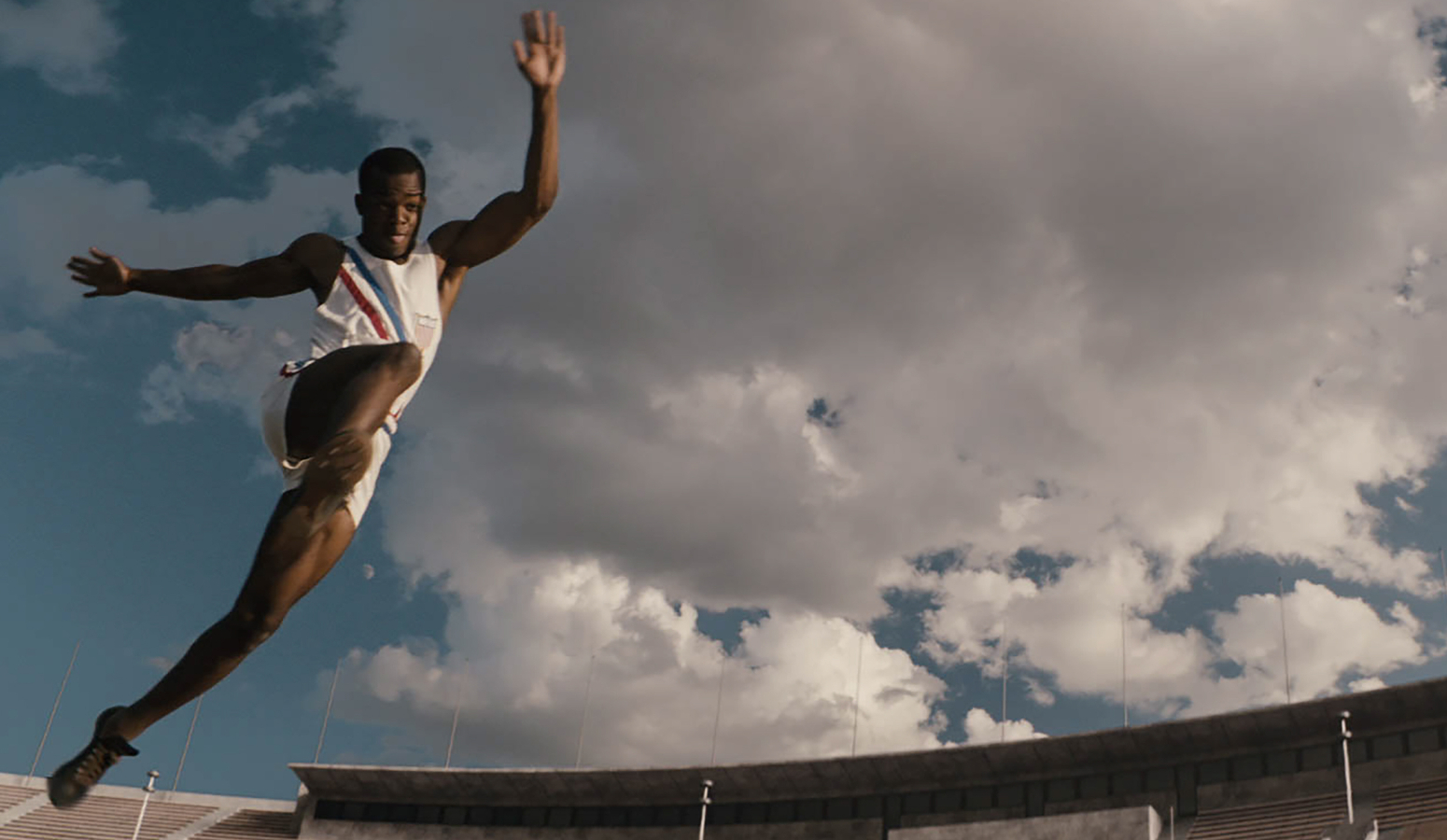Score: A
Director: Stephen Hopkins
Cast: Stephen James, Jason Sudeikis, Shanice Banton, Carice van Houten
Running Time: 134 Minutes
Rated: PG-13
Race follows Jessie Owen’s chase to become the greatest runner of all time from his humble beginnings starting at Ohio State to the 1936 Olympics in Nazi Germany.
Race is another great biopic in the vein of Ray and Walk the Line and boasts an incredible sports story in much the same approach as Hoosers. Everything clicks in this film from the writing to the acting to the directing.
Stephen James does a phenomenal job as title character Jesse Owens. The movie showcases Owens as he has to take care of not only his family, because his father had fallen victim to the unemployment crisis of the time, but also his girlfriend and their daughter. In an effort to try and be everything to everyone, he occasionally loses sight of himself. On a few occasions he lets the pressure get to him and James takes you through the roller coaster that was Owens’ life in such stride it would have won Owen a gold-medal (or maybe James an Oscar nomination).
Playing opposite James’ Owens is Jason Sudeikis as Larry Snyder, the Ohio State track coach who unlocked Owens’ potential and helped nurture him to the 1036 Olympics. This is Sudeikis’ first dramatic role and he does not disappoint. He has that classic Sudeikis charm, but he brings such a warmth and heart to this character. He was able to access a wide range of emotions from empathy, anger, love and joy, even entering the realm of downright fear when he gets mistaken for a Jew while in Germany.
Another aspect to the film that was intriguing and a great extra touch was its ability to shine light on the “behind the scenes” dealings of America, the Nazis and whether or not the most prominent country in the world would even participate in the 1936 Olympics. Jeremy Irons and William Hurt play Avery Brundage and Jeremiah Mahoney, respectfully. The two are on opposite sides of the argument with Iron’s Brundage eventually winning the vote and securing America’s involvement in the event. They played their parts admirably and give the performance that you would expect from such veterans, although Iron’s American accent does leave a bit to be desired. The same cannot be said for Barnaby Metschurat’s portrayal of well known historical psychopath and criminal mastermind Joseph Goebbels. When Metschurat is on screen you get a slight shiver up your spine as though the devil himself were on the screen (and for anyone who knows their history; Goebbels very well could have been the devil incarnate).
The writing is smart, captivating and well paced. It did not feel as though there was any part of the film that lagged and in a movie about racing, that’s a crucial aspect. The film showcases Owens’ relationship with Snyder while also focusing on the racism from those around him. The contentious business dealings between Brundage and Goebbels prove a key story point, which is only compounded as the weight of the world is ever so delicately placed on Jesse Owens’ shoulders.
Stephen Hopkins vision shines throughout the film, but it shines brightest once the 1936 Olympic stage is set. At a point in the movie where everything could have become convoluted, Hopkins and his writers keep all the storylines working in such wonderful unison that it would be worthy of a gold-medal in the 4X400 relay. His camera work during the races worked and he was able to beautifully capture the grandeur of the Olympic arena.

